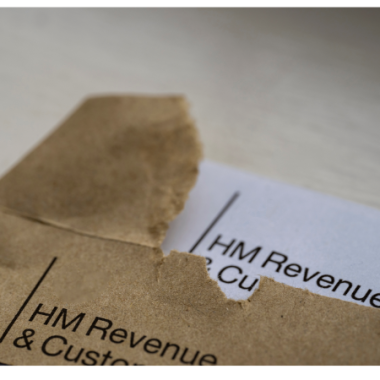Starting your own UK LTD (Limited) Company can feel like learning a new language. But don’t worry, we’re here to translate all that confusing jargon into plain English. By the end of this guide, you’ll know exactly what you need to do to set up your own LTD company and understand all the terms that come with it.
What is Companies House?
Think of Companies House as the register for all the LTD companies in the UK. This is where your company gets officially listed and where changes/ updates to your company’s information are made. You can register your company here yourself, or you can use a formation agent to do it for you.
Formation Agent: Your Helpful Guide
A formation agent is like a tour guide who knows all the shortcuts. They help you fill out all the forms correctly so that Companies House doesn’t send them back. They can also provide valuable add-ons, such as protecting your home address from public view and supplying crucial legal paperwork that Companies House doesn’t offer.
Companies House and HMRC: Are They the Same?
Nope, they’re like cousins. Companies House lists your company, and HMRC (His Majesty’s Revenue and Customs) is interested in your company’s money (taxes). When you register with Companies House, HMRC gets notified automatically.
Proof of ID: Why It’s Needed
You’ll need to prove who you are when setting up a company. This is to meet strict regulatory requirements all formation agents must abide by. Usually, this is done electronically but sometimes they may need to see copies of your documents.
SIC Codes: What Does Your Company Do?
This is a code that tells people what kind of business you’re in, like “retail” or “construction.”
SIC Codes, or Standard Industrial Classification codes, are numerical codes and are a way to make it clear to potential clients, partners, regulatory bodies and financial institutions, such as your bank, what your business specialises in.
How to Choose Your SIC Code
Pick from a List: Companies House provides a comprehensive list of SIC codes covering various industries. You can browse through this list to find the code that best describes your business.
Multiple Codes: If your business engages in more than one activity, you can select multiple SIC codes. However, you’ll need to identify one as your primary business activity.
General Codes: If you can’t find a code that precisely matches your business, there are general codes available that offer a broader classification. These can be useful if your business spans multiple sectors or is a bit unconventional.
Choosing a Company Name
This is the fun part! But be careful—your name needs to be unique and can’t be too similar to another company’s name. Here’s some extra help finding a name.
Your company’s address options:
Registered Office Address
This is your company’s official address. It’s like your home address but for your company and all official mail will be posted there. If you don’t want people to know your home address, you can use a service such as the one we have in our formation packages to keep it private.
Service Address
Every director and PSC must give a correspondence address to Companies House. Although Companies House needs to have your actual residential address on file, you have the option to use a service address which keeps your personal details confidential from the public. Formation agents, such as Duport, offer this service to help you maintain your privacy.
SAIL Address
This is an extra address where you can keep important company records. It’s optional and only needed if you want to keep those records somewhere other than your registered office.
Who’s Who in Your Company
Director
The director is akin to the captain of a ship, responsible not just for guiding the company but also for various legal duties. There must be at least one director in a UK LTD. The director can be held legally responsible if things go wrong.
Responsibilities of a Director
● Directors must always act in the best interests of the company, avoiding any conflicts of interest.
● They ensure the company follows all laws and regulations, including filing necessary documents with Companies House and HMRC.
● Directors are responsible for the company’s financial health.
● Directors have the final say in major business decisions, and they’re accountable for the outcomes.
● Records of company meetings, decisions, and financial transactions must be maintained.
Secretary
Having a company secretary is not a requirement for LTD companies in the UK. While larger companies often employ one to manage legal and administrative tasks, smaller companies often delegate to the director.
Person with Significant Control (PSC)
A Person of Significant Control (a PSC) is someone who holds significant influence or control over a company but isn’t necessarily a director or shareholder (although they can be either or both). Think of them as a behind-the-scenes influencer who may not be in the spotlight but still plays a crucial role in the company’s operations.
What Makes Someone a PSC?
Ownership of Shares: If someone owns more than 25% of the company’s shares or voting rights, they’re considered a PSC. Sometimes, a person may have significant influence or control over the company through other means, like contractual arrangements or decision-making powers.
Why is Identifying a PSC Important?
Identifying and registering a PSC is a legal requirement for LTD companies in the UK. This is part of the government’s efforts to increase transparency and combat financial misconduct like money laundering. Failure to identify and register a PSC can result in fines and other legal consequences.
Shareholders: The Owners of Your Business Cake
Shareholders are the individuals or entities that own a portion of the company, much like owning a slice of a cake. They may receive dividends if the company turns a profit. Dividends are payments made to shareholders when the company has made a profit (after expenses paid). Dividends are usually distributed based on the percentage of company shares you own. So, the more shares you have, the larger your slice of the dividend cake will be.
One Person, Multiple Roles
A single individual can wear multiple hats in a company, serving as both the director (the manager of the business) and the sole shareholder (the owner of the business). This is a common setup for freelancers, consultants, and small business owners.
Share Structure
The share structure is essentially a blueprint that outlines who owns what percentage of the company. It also dictates who has voting rights and how profits, known as dividends, are distributed among shareholders.
Keeping It Simple
Most LTD companies have straightforward share structures. It’s common to have a low number of shares, often 100 or even just one, especially in smaller companies or startups. These shares usually come with equal voting rights and dividends, making the setup uncomplicated and easy to manage. Shares also come with a nominal value, this is the amount per share that the shareholder is bound to pay into the company. If you start a company with 10 £1 shares the shareholder is liable to pay £10 into the company. If you start your company with 100,000 £1 shares you will be liable for £100,000. It’s worth keeping the number of shares low to begin with, more can always be added when you need them.
Flexibility for the Future
While many companies start with a simple share structure, it’s worth noting that this can be changed in the future. As your company grows, you might decide to issue more shares or create different types of shares with varying rights.
Legal documents
Articles of Association: The Rulebook
This is like the rulebook or manual for how to run your company. Most people use a standard set of rules, which are automatically used for most LTD formations.
Company Minutes
These are notes from important company meetings. Company minutes are the official written records of what was decided during formal company meetings. Our packages come with the minutes of the first meetings.
Company Register and PSC Register
Every company must keep a register of officers, members and minutes. Our packages include these to help you maintain your company records in a clear and fully compliant way.
Other Must-Knows
Bank Account
You’ll need a separate bank account for all the company’s money. This is a legal requirement. Agents like Duport can arrange an account set up in 10 minutes.
Non-UK Residents
Even if you don’t live in the UK, you can still set up a LTD company here. You’ll just need a UK address for the company which we can provide you with.
How Long Does It Take?
On average, it takes 10 minutes to fill out the online application and around 8 working hours for your company to be created.
Can I Set Up Now and Not Trade?
Yes, you have two options: use our reserve name service or register the company in your name and advise HMRC that you’re a non-trading company.
What are the Costs?
Our basic LTD company formation is just £15.99. Additional services are available at different price points.
Why use Duport (official Companies House Agent) to set up your company
● Exclusive Industry Guide: Receive a tailored guide specific to your business sector, giving you the insights you need to succeed.
● Ongoing Business Support: Benefit from continuous support through live one-to-one sessions, email, and phone assistance, ensuring you’re never alone on your business journey.
● Instant Bank Account Setup: Get your business bank account up and running in no time, so you can start trading immediately.
● Domain Registration: Secure your online presence with our hassle-free domain registration service.
● Address Services: Maintain your privacy with our registered office and service address options.
● In-House Accounting Firm: Access expert financial advice whenever you need it, thanks to our own accounting company.
● Flexible Packages: Choose from a range of packages designed to meet your specific needs, whether it’s privacy, compliance, or comprehensive business support.
● With Duport, you’re not just forming a company; you’re gaining a long-term business partner.
Setting up an LTD company can seem very complicated, but most companies are actually small and have really simple setups that work for just about everyone. Now you understand the Jargon setting one up will be so much easier!
And remember, if you get stuck, Duport is here to help.







